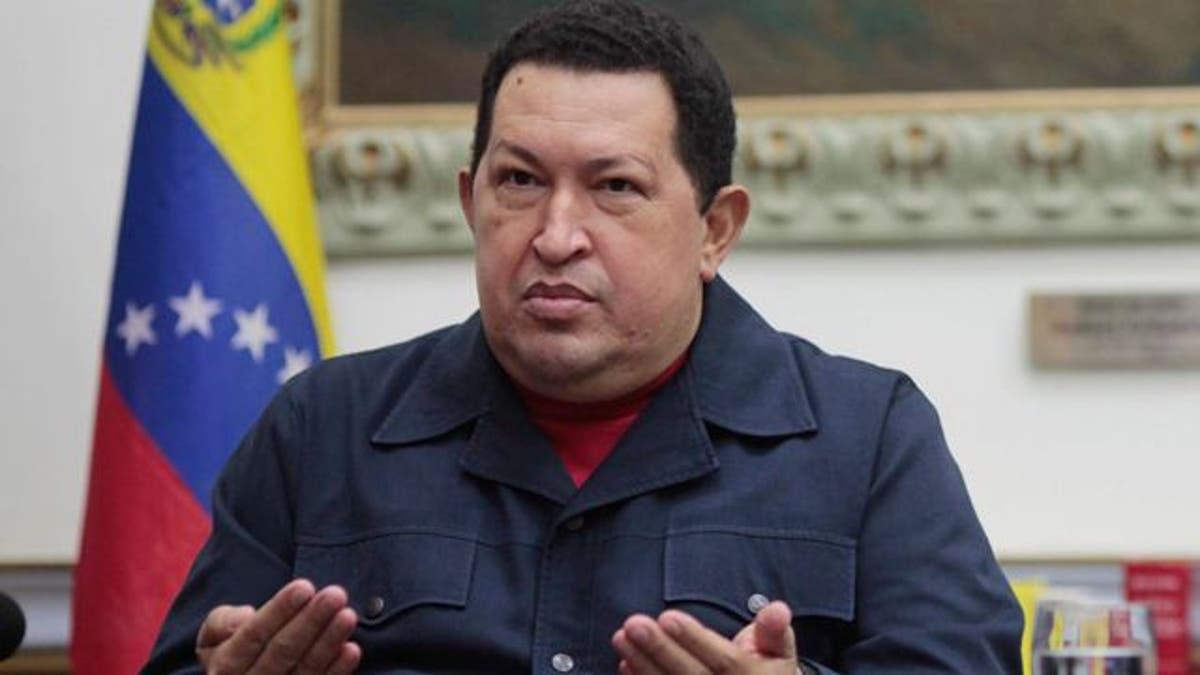
After the candidate they voted for lost, countless Venezuelan immigrants settled back into their lives in the United States, resigned to seeing President Hugo Chávez in power another six years. It seemed change was still far away.
Now with Chávez's health on the line, the future of the country is awash in uncertainty. For the thousands of Venezuelans who live in Miami and elsewhere in the U.S., many of them with a foot in two different countries, their future is also in limbo: They are cautiously optimistic new elections will be held in Venezuela but also skeptical change will occur soon.
"It's traumatic to all Venezuelans," said Sollami Gilda, 22, who left the country five years ago.
Chávez is due to be sworn into office for a new term Jan. 10 but he has not been seen or heard from since his Dec. 11 cancer surgery. If he is not able to do so, the constitution states presidential powers should be held by the president of the National Assembly temporarily and a new vote held within 30 days.
Meanwhile, recent news stories have raised questions about whether contacts between U.S. and Venezuelan diplomats could potentially lead to an improvement in long-strained relations if Chávez's health continued to worsen
Vice President Nicolás Maduro on Thursday suggested reports about recent contacts between U.S. and Venezuelan diplomats were distorted. He also said Chávez authorized the conversations.
"In these days, we've seen how there have been attempts to distort an event that was simply sought to be carried out with the authorization of the president" in late November and early December, Maduro said. "And it has to do with the relationship with the government of the United States."
"Some articles have come out that have tried to manipulate a group of elements," Maduro said, without giving details.
An estimated 189,219 Venezuelan immigrants live in the United States, with 91,091 in the state of Florida, according to U.S. Census figures. The largest concentration is in South Florida, in communities like Doral and Weston that are now affectionately known as "Doralzuela" and "Westonzuela" because of their plethora of Venezuelan businesses catering to the community with authentic foods such as arepas and capachas.
Most left either because they did not agree with Chávez's socialist government, became frightened by the high number of killings and kidnappings, or believed they had a better economic future in the United States. But many still have relatives in Venezuela and travel back to see family and do business.
Like Cuban exiles who celebrated when Fidel Castro fell ill nearly five years ago, Venezuelans in Miami are hoping the decline in Chávez's health will mean a change in leadership is on the horizon. Yet in the 14 years that Chávez has been in power, the Venezuelans who left have become increasingly rooted in their adopted home.
Most would not go back, at least immediately, even if Chávez does die.
"I think 70 percent will stay here," said Ernesto Ackerman, president of the Independent Venezuelan-American Citizens, a nonprofit group. "They are already too well established."
"They haven't lost their identity of being Venezuelan," said Thomas Boswell, a geography professor at the University of Miami. "They haven't completely assimilated or disappeared but they have accommodated very quickly to living in the United States."
In some ways, these communities are what Miami's Little Havana was to Cubans who first arrived after the communist revolution in 1959. There are similarities among those who left both countries: The first arrivals were largely from the middle and upper classes, and brought with them degrees and careers they were able to re-establish to varying success.
Both initially thought their stay would be temporary, only to see it become long term. And both have stayed fiercely attached to their homeland.
The parallels stop there. Chávez was elected and re-elected to two subsequent terms, while Castro took power in a revolution. And while Cubans have benefited from an immigration policy that allows essentially anyone who reaches U.S. shores to stay, Venezuelans have not been awarded the same privileges, though many have become U.S. citizens.
"We should see what happened, and maybe learn from it, but it's two very, very different situations," said Ackerman, the head of the Venezuelan-American group.
Venezuelans in Miami mounted a concerted effort to get out the vote last year, organizing trips to New Orleans by car and bus after Chávez closed the consulate in South Florida. Many hoped opposition leader Henrique Capriles would win, only to be disappointed.
"Right now, the community is very, very depressed over what happened in the last election," Ackerman said. "They say that it will never end, that we should become citizens here in the United States."
That is the mentality Bridgitte Jaffe has had since leaving Venezuela in 2007. She had her own home and real estate company there, but each day saw the country fall further into a state of turmoil.
She now works in real estate in South Florida and owns her own apartment. She plans to stay, regardless of what happens with Chávez.
"Once you have moved here, when you start working and when your children are born in this country, people don't go back," Jaffe said.
Doral recently elected the first Venezuelan-born mayor in Florida, Luigi Boria. He said he believes most of his constituents feel the same way.
"I think my country now is United States of America," said Boria, who left in 1989.
Venezuelans here say they may celebrate Chávez's death, but it is unlikely to be like the masses that cheered and danced with flags when Fidel Castro stepped down from power amid his own health concerns in 2008. Like the Cubans, Venezuelans realize that won't mean imminent change.
"It would give me a sense of relief," Sollami said. "I can think Venezuela can get better sometime soon."
Based on reporting by The Associated Press.
Follow us on twitter.com/foxnewslatino
Like us at facebook.com/foxnewslatino
